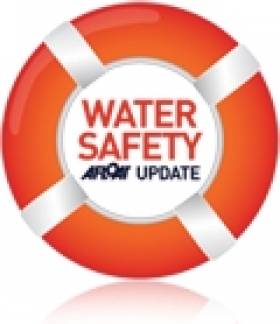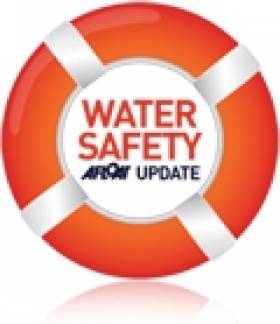Displaying items by tag: deaths
New UK Figures Show 381 Water-Related Deaths In 2013
#WaterSafety - There were a total of 381 drownings and water-related deaths from accidents or natural causes across the United Kingdom in 2013, according to a report published this week by Britain's National Water Safety Forum (NWSF).
As in previous years, more than half of that number (227) were in inland waters, such as tidal and freshwater rivers, lakes and reservoirs, while fatalities at the sea, on the beach or shoreline accounted for nearly a third (115).
A further 22 deaths happened at harbours, docks, marinas and inland or coastal ports. Eight deaths occurred in the bath and six in swimming pools, while three happened in areas that are not normally watercourses such as marsh and flooded land.
The figures include deaths in water that resulted from natural causes such as a heart attack, drowning or other fatal injuries resulting from falls into water and those that occurred during the course of water-based activities.
The NWSF’s Water Incident Database (WAID) breaks down drownings and other water-related deaths by activity, age and location type. It reveals that in 2013 the five-year age group with the highest number of fatalities (31) was males aged between 20-24.
Meanwhile, 0-19s accounted for 12 per cent of deaths (46), of which more than half were teenagers aged 15 to 19 (27). In the youngest age bracket of four and under, 10 children drowned.
The peak summer months of July and August witnessed the most deaths, with 106 during this period.
The leading activities were people walking alongside water and falling in, swimming (predominantly in open water) and jumping into open water.
There were 260 deaths in England, 56 in Scotland, 41 in Wales and 11 in Northern Ireland. In England, the South West (53) and the South East (50) regions had the highest number of deaths.
NWSF deputy chair Jim Watson said: “Although the number of accidental drownings and water-related deaths has remained consistent in recent years, there should be no room for complacency, particularly as we enter the warmer summer months and more people are drawn to the water.
“We encourage people to enjoy the UK’s waters, but to make sure they understand the risks and come home safely.”
A full copy of the UK Water-Related Fatalities 2013 report can be downloaded as an Excel spreadsheet HERE.
The WAID was developed by NWSF members, including national partners the Canal and River Trust, the British Sub Aqua Club, the Maritime and Coastguard Agency, the RNLI, RoSPA and the Royal Life Saving Society; sports governing bodies; and regional and local organisations, including Cornwall Council. It was developed in partnership with the UK government's Department for Transport.
New Database Reveals Deaths in UK Waters
The first report from a new incident database shows that more than 400 people died from accidents or by natural causes in water across Great Britain and Northern Ireland in 2009.
The WAID (Water Incident Database) was developed by the National Water Safety Forum (NWSF) to enable greater detail and volume in collecting data on fatal and non-fatal drowning, other water-related deaths and injuries, and near misses.
Of the 405 total deaths in 2009, more than half (213) occurred in inland waters. Nearly a quarter (99) happened on the coast or in a harbour, dock, marina or port, while one in seven deaths (57) happened further out at sea.
There were 19 deaths as a result of incidents in baths, five in swimming pools and one involving a water container. Eleven people died in places that are not usually watercourses, such as flooded areas.
The most commonly reported activity, which accounted for 78 fatalities, was someone entering the water while walking or running, for example to cool off or by falling.
Saturday was noted the most common day and August the most common month for fatalities to occur.
David Walker of the NWSF and the Royal Society for the Prevention of Accidents said: “Managing water risks is all about a balance between giving people freedom to make informed choices about how to enjoy water and the impact those choices have on society in general."
He added: "By providing better information, WAID will assist in striking that balance and enable us to develop more effective prevention work.”
WAID was developed by NWSF member agencies and bodies in partnership with the UK Department for Transport. For more information and to view the report visit www.nationalwatersafety.org.uk.






























































